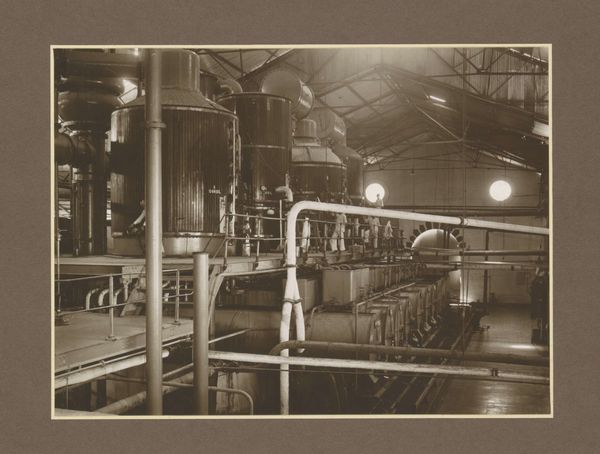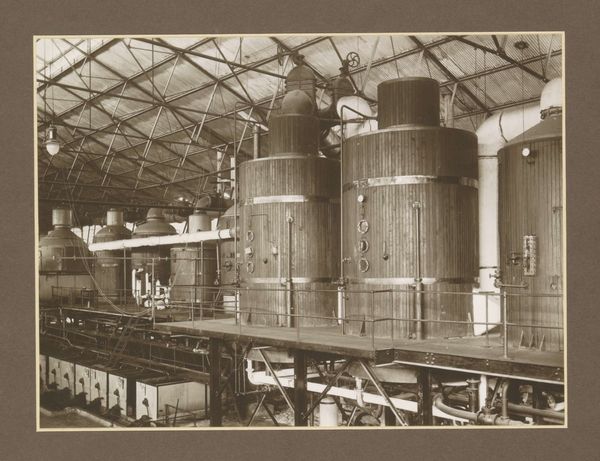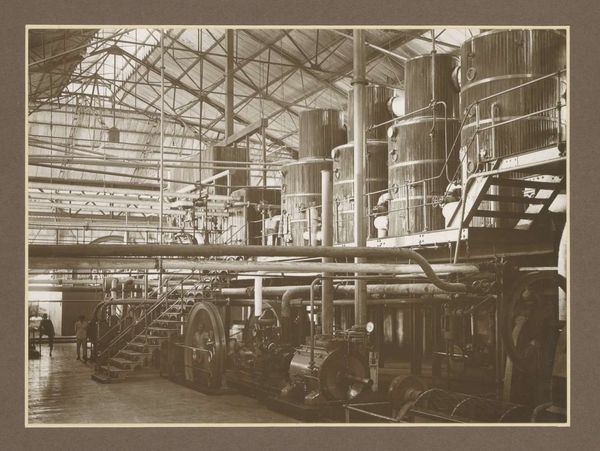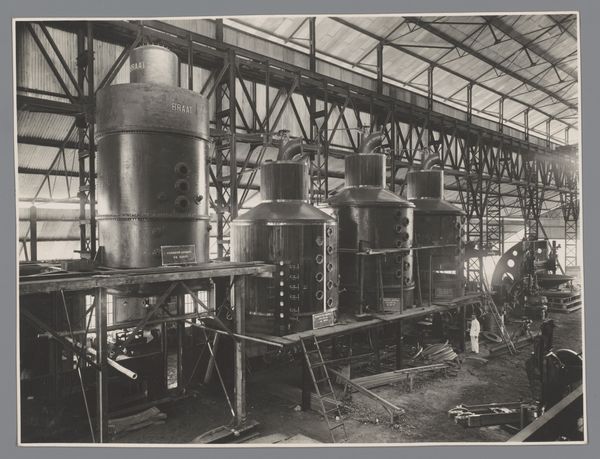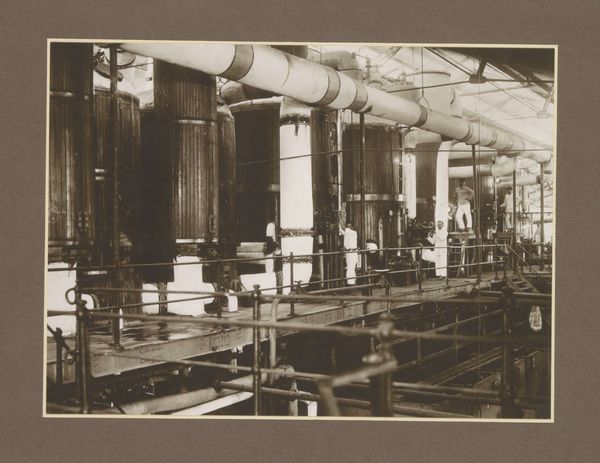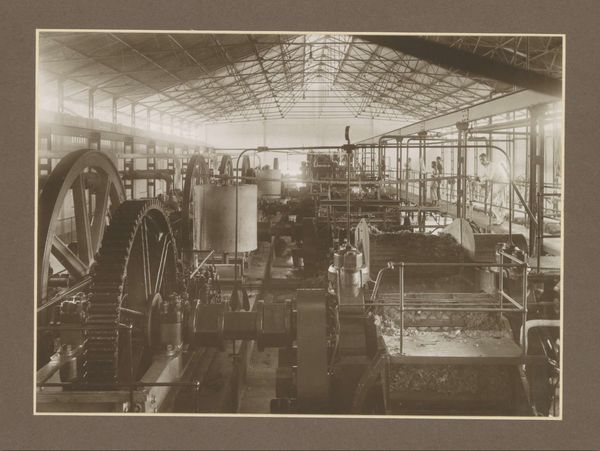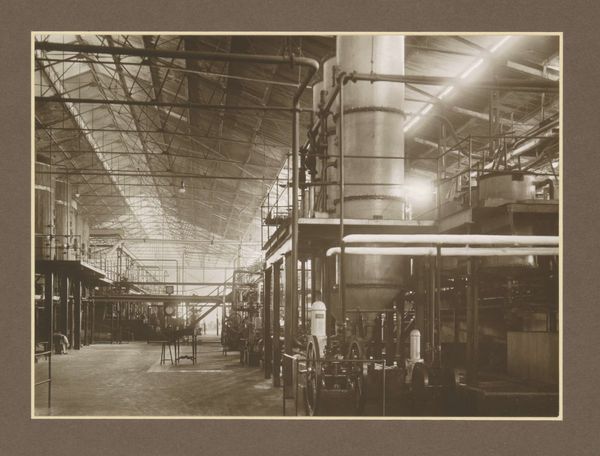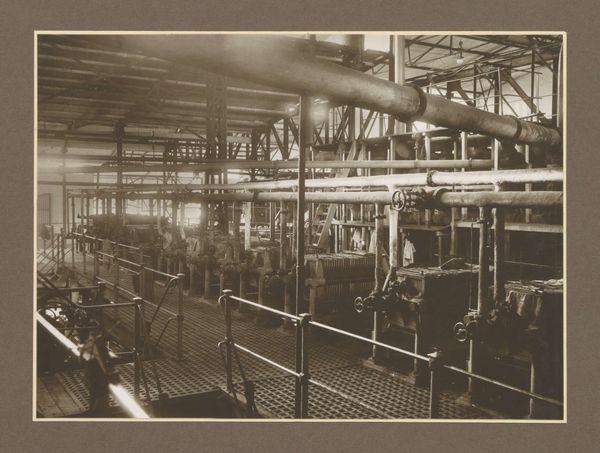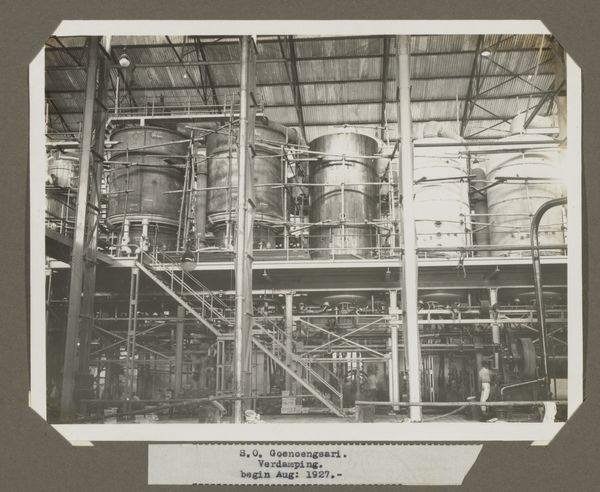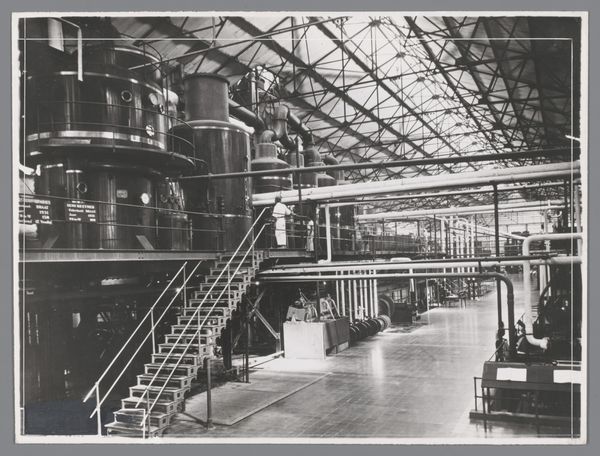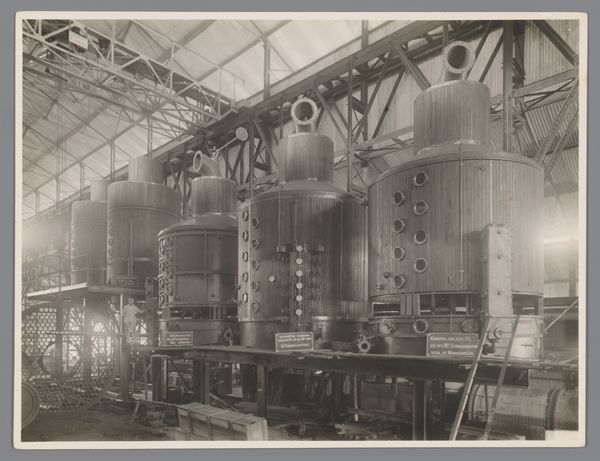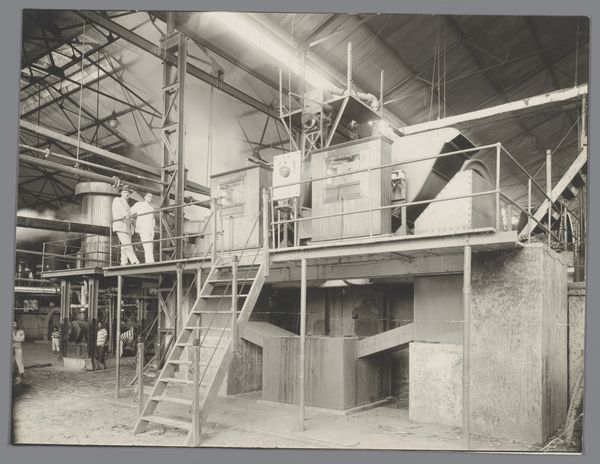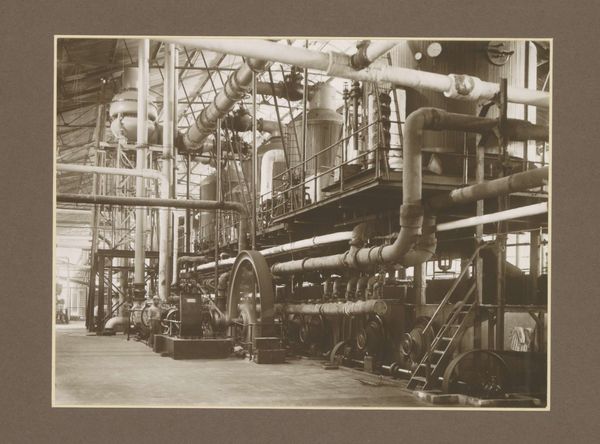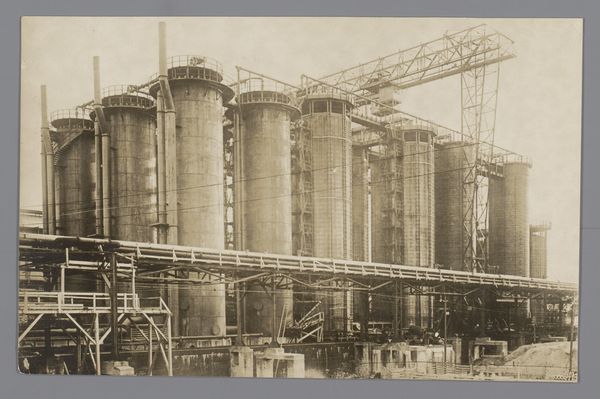
photography
#
landscape
#
photography
#
realism
#
poster
Dimensions: height 297 mm, width 450 mm
Copyright: Rijks Museum: Open Domain
Editor: So, this is a photograph from somewhere between 1925 and 1930 by Isken. It’s called "Hall with machines of sugar factory Ngandjoek on Java." It feels very documentary in style. Almost like a record, rather than something artistic. What symbols jump out at you when you see it? Curator: The entire image is steeped in symbols of colonial industrial ambition. Notice how the machines are the focal point, imposing and powerful. These towering vessels, the intricate pipework - they visually represent the extraction and transformation of the land. It’s more than just a photograph; it’s a monument to industry of that period, isn’t it? Editor: It definitely has that "monument" feeling. What’s interesting is that a sugar factory has strong ties to taste. Is the fact it is a 'sugar factory' important? Curator: Yes, very important. Sugar, beyond its literal sweetness, carried the bitter legacy of colonialism, trade routes, and exploited labour. To see this factory is to see a kind of visual echo chamber of power dynamics. Those machines aren't just refining sugar; they’re processing a whole history. Editor: I never thought of the sweetness of sugar as also reflecting something so complicated. I now see more symbolism, rather than simple documentation. Thanks. Curator: Indeed! Images like this help us confront the tangible echoes of history, revealing how profoundly objects can embed our cultural memory.
Comments
No comments
Be the first to comment and join the conversation on the ultimate creative platform.
